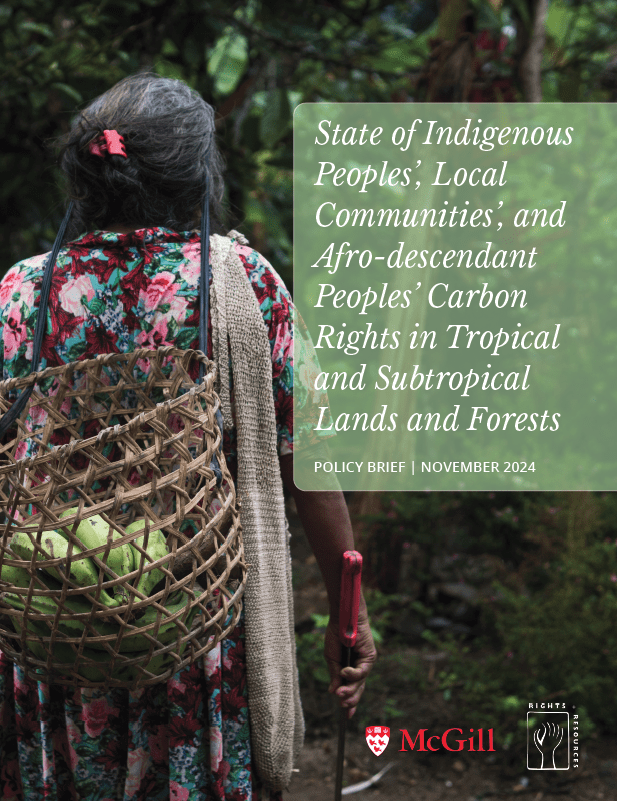Date: November 12, 2024
Due to limited progress in reducing carbon emissions in industrialized countries, global interest in using nature-based climate solutions (NbS) has never been greater among governments, corporations, and non-governmental organizations (NGOs). In principle, NbS are meant to leverage multilateral, bilateral, and private finance to fund initiatives to protect, manage, and restore ecosystems to mitigate and remove carbon emissions while also generating social and environmental benefits. However, many NbS schemes, especially those involving private carbon markets, have been criticized for their lack of transparency and climate integrity and their potential adverse impacts on affected communities. Yet despite a growing mistrust in the purported benefits of the voluntary carbon market, carbon trading projects and investments continue unabated.
This policy brief is an update of a 2021 report by RRI and McGill University and summarizes findings from a study undertaken by the Rights and Resources Initiative (RRI) and McGill University to systematically analyze the carbon rights held by Indigenous Peoples, local communities, and Afro-descendant Peoples in 33 countries in Africa (11), Asia (9), and Latin America (13). These countries cover an estimated 67 percent of the world’s tropical and subtropical forests and have a combined rural population of 1.54 billion people, over 44 percent of the world’s rural population. We examine whether and how countries are currently protecting the rights necessary for communities to manage, control, and benefit from carbon on their lands and to access compensation and justice when they are affected by carbon trading initiatives.
For this analysis, we collected data on 35 indicators from domestic laws and policies related to land, carbon, and resource rights across several sectors, including constitutional law; land tenure administration; and forest, climate, and environmental law. Across the 33 countries, our analysis refers to the legal rules that govern 96 community-based tenure regimes (CBTRs) identified by RRI in these countries.
These findings are based on a forthcoming study by the Rights and Resources Initiative and scholars based at McGill University.
Cover photo: A woman stands in the Amazon Rainforest in Colombia collecting bananas in a basket strapped to her back. Credit: Amazon Conservation Team.
https://doi.org/10.53892/OFGY6987

